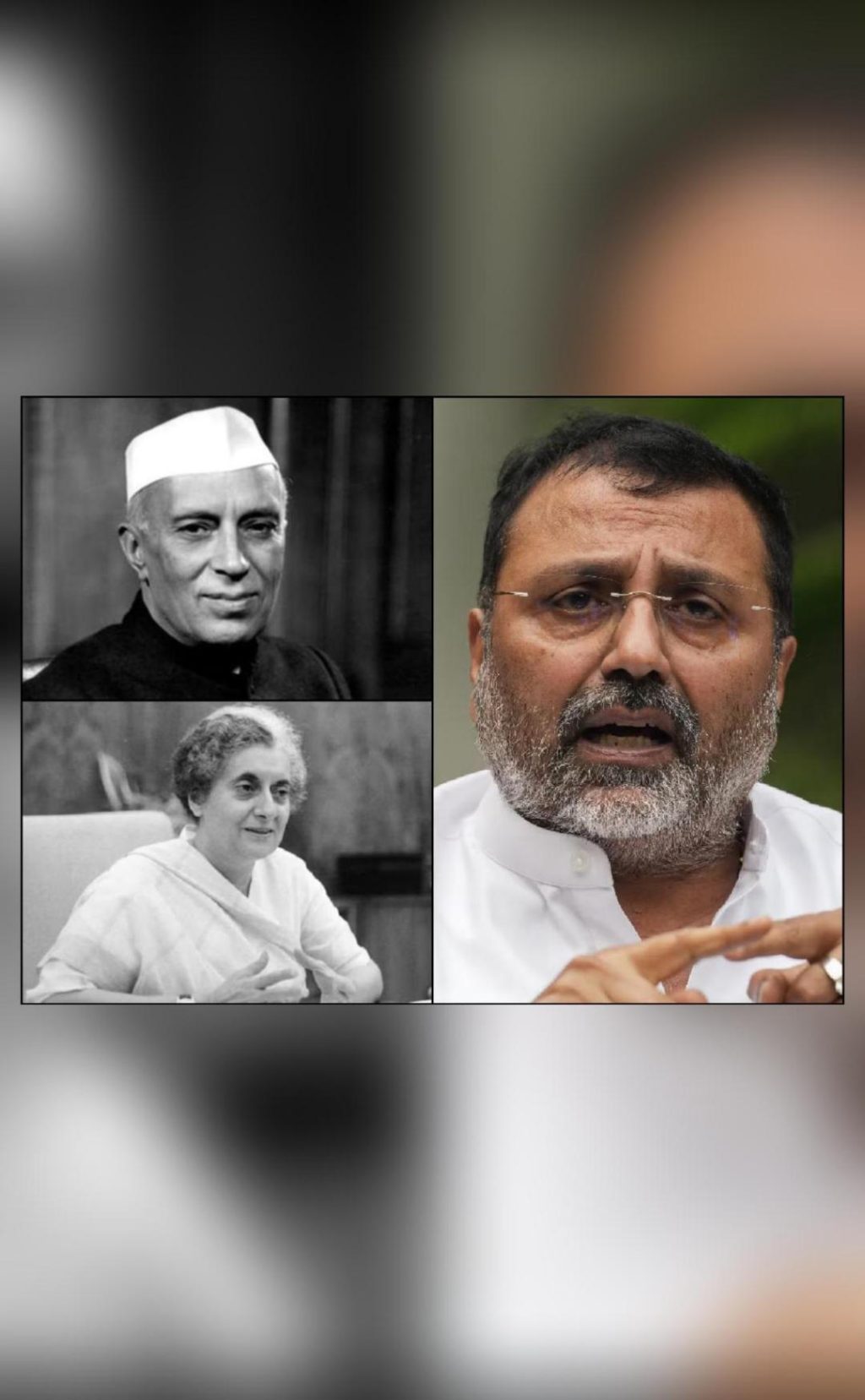
Nehru & Indira drove away Intel from India; it went to China: BJP
In a recent statement, BJP MP Nishikant Dubey made a bold claim that has sent shockwaves across the nation. He alleged that the former Prime Ministers Jawaharlal Nehru and Indira Gandhi drove away semiconductor companies like Intel and Fairchild from India, forcing them to set up shop in China instead. This statement has sparked a heated debate about the country’s industrial and economic policies, particularly in the realm of technology.
Dubey’s assertion was made in a tweet, where he stated, “It was because of Intel that Silicon Valley developed in America, where more than half of the jobs are held by Indians.” He further claimed that if Intel had stayed in India, the country would have developed into a major tech hub, rivaling Silicon Valley.
While Dubey’s statement may seem sensational, it is not entirely unfounded. Intel, one of the world’s largest semiconductor companies, did indeed have plans to establish a manufacturing facility in India in the 1970s. However, the project was scrapped due to opposition from Nehru’s government.
The story goes that Intel was keen to set up a plant in India to capitalize on the country’s growing demand for microchips. The company had already established a presence in India with a research and development center in Bangalore. However, the Indian government, led by Nehru, was hesitant to grant Intel permission to establish a manufacturing facility.
According to reports, Nehru’s government was concerned about the potential impact of foreign investment on the country’s fledgling electronics industry. The government wanted to protect the interests of Indian companies and ensure that the country developed its own indigenous capabilities.
Fast forward to the 1980s, and a similar story unfolded with Fairchild Semiconductor, another major semiconductor company. Fairchild had plans to establish a manufacturing facility in India, but the project was ultimately cancelled due to opposition from Indira Gandhi’s government.
Indira Gandhi’s government was concerned about the potential competition from foreign companies and the impact it would have on Indian industries. The government believed that Indian companies needed protection to develop their own capabilities and compete with foreign companies.
While Dubey’s statement may be seen as an exaggeration, it does highlight the fact that India’s industrial and economic policies have often been criticized for being protectionist and restrictive. The country’s technology sector, in particular, has struggled to attract foreign investment and talent due to bureaucratic hurdles and lack of support from the government.
The story of Intel and Fairchild is a cautionary tale about the consequences of not embracing foreign investment and talent. If India had allowed Intel to set up a manufacturing facility in the 1970s, the country may have developed a strong semiconductor industry, rivaling those in the United States and Taiwan.
In conclusion, while Dubey’s statement may be seen as an exaggeration, it does highlight the importance of creating a conducive environment for foreign investment and talent. India’s technology sector needs to be more open and welcoming to attract the best minds and companies from around the world.
Sources:






